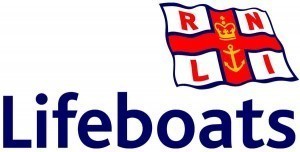10 April 2020
By Bryan Smyth
bryan@TheCork.ie
The Irish Coast Guard (IRCG) and RNLI (Royal National Lifeboat Institution) are asking the public not to take part in any water-based activity on or in the sea, while the current national emergency restrictions are in place. Both organisations are highlighting the importance of minimising the risk to Search and Rescue (SAR) volunteer crews, Helicopter crew and other front line emergency services, through being unintentionally exposed to COVID-19.
RNLI and Coast Guard are confirming that their Search and Rescue services are fully operational.
Under normal circumstances, many people would be heading to the coast this weekend to enjoy the Easter bank holiday. Given the current COVID-19 outbreak, both organisations are urging everyone to follow Government instructions, which are clear: stay home, protect frontline services and save lives.
While you are allowed out for daily exercise, we do not recommend that this exercise is on or in the sea and all travel restrictions must be observed. SAR services including RNLI lifeboat service, Coast Guard Helicopter services and Coast Guard units are still available, but every callout has the potential to put additional pressure on SAR services and other front-line emergency services as well as potentially exposing them to COVID-19.
Gareth Morrison, Head of Water Safety at the RNLI, said: ‘We know people who live near the coast still want to exercise by the sea, but when you do this, please think of the potential impact of your actions on RNLI lifeboat volunteers and other emergency services.’
Gerard O’Flynn from the Coast Guard said, “Please; Stay Home & Stay Back to Stay SAFE. Observe the 2×2 Rule. 2M physical distance & 2KM travel distance. Arrangements are in place for Coast Guard services including Helicopters and Volunteer Coast Guard units to assist HSE, Gardai and Local Authorities in provision of community support and other logistical support. We need our people to stay healthy during this emergency to enable us support the national action plan.’
Key facts about the RNLI
The RNLI charity saves lives at sea. Its volunteers provide a 24-hour search and rescue service around the United Kingdom and Republic of Ireland coasts. The RNLI operates over 238 lifeboat stations in the UK and Ireland and more than 240 lifeguard units on beaches around the UK and Channel Islands. The RNLI is independent of Coastguard and government and depends on voluntary donations and legacies to maintain its rescue service. Since the RNLI was founded in 1824 its lifeboat crews and lifeguards have saved over 142,200 lives.


